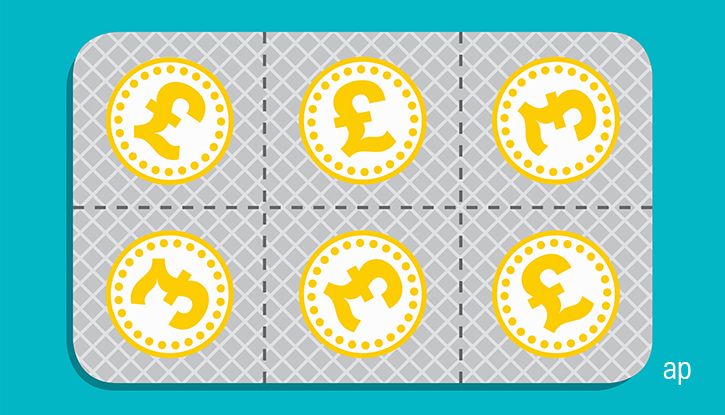
Bonds are an income investment, the clue is in the name: fixed income. But some bonds are asking investors to lock into a loss – negative yields on offer from some government bonds mean you are effectively paying to invest.
Across the Eurozone, negative yields are becoming increasingly common. Bonds issued by the German, Swiss and Danish governments all offer negative returns. Even in other markets, such as the UK, where the headline yield on offer is still in positive territory, investors are still locking into a negative real yield once you take inflation into account.
Yet, with so much uncertainty in global markets, many investors are willing to accept a loss on their money. We ask: does it ever make sense to lock into a negative yield?
Why Are Yields Negative?
Typically the coupon (the interest) you earn on bonds relates to the amount of risk you are taking. That could be the risk that the borrower will repay its debt but also the risk that interest rates will rise, making the coupon you receive less appealing and the bond harder to sell.
Craig Veysey, manager of the Man GLG Strategic Bond fund, explains: “When you’ve already got low yields and low interest rates and then you have quantitative easing, where central banks are buying bonds and supressing yields, that leads to this negative yield phenomenon.”
Accepting a -0.5% return over five years, means that if you invest £100 you will only get back £97.50 at the end of the period – not including any fees, of course.
Veysey adds: “In some respects, you don’t have a choice. If you want a safe haven investment and want to know you will have money to retire on, then negative-yielding bonds may be the only lower-risk investments available. It’s almost like being taxed to keep your money safe for the future.”
Should You Accept a Negative Yield?
Whether you believe a negative yield is a good investment largely depends on your outlook for the future.
Garland Hansmann, manager of the Investec Global Total Return Credit fund, says there are very few scenarios when accepting a return of less than zero is an appealing choice.
“If you think you will look back in five or 10 years and believe that losing 0.5% a year was a good outcome then you’re thinking about a pretty dire economic outcome,” he says. “And, if things are really that bad, then aren’t you nervous about that government bond too?”
But it is worth bearing in mind that negative yields are often a sign of safety. Veysey points out that the highest quality bonds are in the areas which are perceived as being the safest, including Germany, France and Japan. That said, he doesn't hold any of these bonds currently, instead prefering US Treasuries, which still pay a positive return.
Of course, one scenario where locking into a -0.5% yield could pay off is if rates fall further. If yields drop to -1% then a -0.5% coupon looks very appealing. In this instance, the price of the bond will likely rise allowing you to sell at a profit. For this scenario to play out there would have to be a major flight to safety, most likely triggered by an economic downturn or bear market.
Hansmann says: “Maybe that’s a gamble you want to take, but it is just that: a gamble. It requires your theory coming to pass and needs you to time the market, when you buy and sell the bond, correctly.”
One alternative - and not as frequently discussed - outcome that is what happens if rates go up? In that instance the price of a bond paying a negative yield would likely plummet, leading to capital losses. Hansmann says: “If rates go up and you hold that -0.5% bond then you’re really in dire straits.” However, Veysey says it is “difficult to imagine” rates rising beyond 1 or 2% in the coming years.
What are the Alternatives?
If you don’t want to lock into a negative yield, the chances are you’ll need to look outside of Government-backed bonds.
One alternative could be a Money Market fund. These aim to deliver a return in line with the base of rate of interest – currently 0.75% in the UK – less fees. Mark Preskett, portfolio manager at Morningstar Investment Management, says these are “one of the safest investments you can make”.
These funds predominantly invest in short-term debt issued by banks, spreading their risk by lending to lots of different institutions. While the lower risk is reflected in lower returns, Preskett says they can be a good way to preserve capital in the short term and to “keep some powder dry to take advantage of investment opportunities”.
Hansmann says investors who need an income may have to brace themselves and move into riskier territory if they want to generate a real return, such as corporate bonds or even emerging market debt. “Corporate bonds now play the role in portfolios that government bonds used to play,” he says.
Hasmann holds the bonds of UK banks such as Lloyds and HSBC, which can yield around 5%. “You don’t have to go into esoteric things.” Other top holdings include bonds issued by petrol giant Total, broadband company Virgin Media, and German computer chip maker Infineon.






























